Testosterone
How to submit an article:
- Registered users can submit any published journal article that has a unique DOI (Digital Object Identifier) name or link to Research Hub.
- For example, you can paste the full DOI link:
https://doi.org/10.1109/5.771073or just the DOI name:10.1109/5.771073into the field above and click submit. - The person who is first to submit a valid article to Research Hub will forever be credited for it, and every article submission earns you +6 Research Points.
Related Topics
Published research studies are articles that present the findings of original research that has undergone a peer-review process and has been made publicly available in scholarly journals, books or other media.
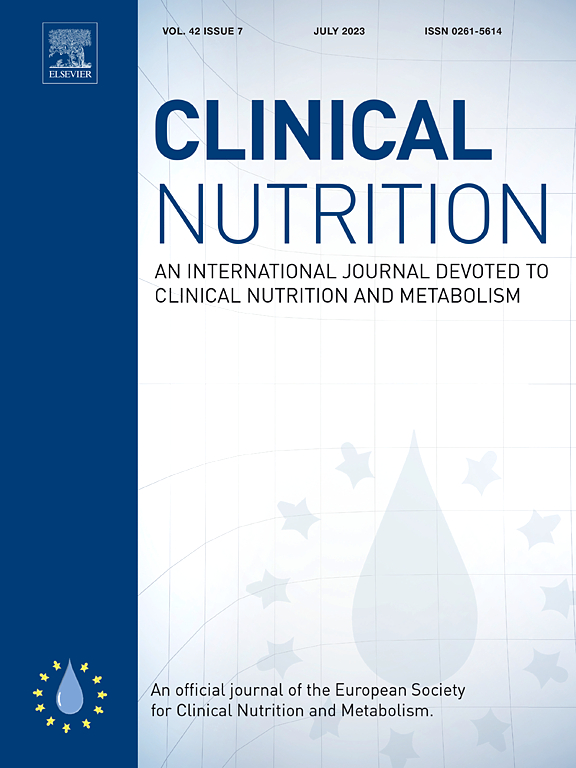
Effects of pomegranate juice consumption on sperm quality, spermatogenic cell density, antioxidant activity and testosterone level in male rats
2024 Apr Clinical Nutrition Türk G, Sönmez M, Aydin M, Yüce A, Gür S, Yüksel M, et al.
PJ consumption resulted in a significant decrease in malondialdehyde (MDA) level and significant increases in glutathione (GSH), glutathione peroxidase (GSH-Px), catalase (CAT) activities, and vitamin C levels. Additionally, PJ improved epididymal sperm concentration, sperm motility, spermatogenic cell density, seminiferous tubule diameter, germinal cell layer thickness, and decreased abnormal sperm rates in comparison to the control group, suggesting that PJ consumption enhances sperm quality and antioxidant activity in rats.
Experimental Study Animal Study Antioxidant Sperm Quality Pomegranate
The effects of propolis supplementation on high‐sensitivity C‐reactive protein, testosterone hormone, and metabolic profile in women with polycystic ovary syndrome: A randomized, triple‐blinded, placebo‐controlled clinical trial
2023 Sep 02 Phytotherapy Research Abbasi E, Bagherniya M, Soleimani D, Ghasemi‐Tehrani H, Abbaspour M, Clark CCT, et al.
Randomised Controlled TrialPropolis supplementation positively influences metabolic factors, testosterone levels, lipid profile, and body measurements in women suffering from polycystic ovarian syndrome.

Effects of the low-carb organic Mediterranean diet on testosterone levels and sperm DNA fragmentation
2023 Jan Current Research in Food Science Corsetti V, Notari T, Montano L
Cohort StudyThe Mediterranean diet, rich in organic vegetables, fruits, whole grains, and healthy fats, can markedly improve male fertility by increasing testosterone levels and reducing sperm DNA fragmentation.

The effect of concentrated pomegranate juice on biomarkers of inflammation, oxidative stress, and sex hormones in overweight and obese women with polycystic ovary syndrome: A randomized controlled trial
2023 Jan 18 Phytotherapy Research Abedini M, Ramezani‐Jolfaie N, Ghasemi‐Tehrani H, Tarrahi MJ, Amani R
Randomised Controlled Trial PCOS Pomegranate TestosteronePomegranate juice supplementation has been found to effectively decrease testosterone levels in overweight and obese women diagnosed with polycystic ovary syndrome.

A comparison of the effects of cinnamon, ginger, and metformin consumption on metabolic health, anthropometric indices, and sexual hormone levels in women with poly cystic ovary syndrome: A randomized double-blinded placebo-controlled clinical trial
2022 Nov 29 Frontiers in Nutrition Dastgheib M, Barati-Boldaji R, Bahrampour N, Taheri R, Borghei M, Amooee S, et al.
Randomised Controlled Trial Cinnamon Testosterone Metabolic Syndrome FSH Ginger PCOS Insulin Resistance Metformin Ceylon Cinnamon LHIn women with polycystic ovary syndrome, cinnamon reduced insulin resistance and testosterone levels similar to metformin, and ginger decreased follicle-stimulating and luteinizing hormones.
Research insights are moderated by the Research Hub team and offer an at-a-glance overview of interesting research findings.

2023 Phytotherapy Research
Propolis supplementation positively influences metabolic factors, testosterone levels, lipid profile, and body measurements in women suffering from polycystic ovarian syndrome.
Randomised Controlled Trial
The effects of propolis supplementation on high‐sensitivity C‐reactive protein, testosterone hormone, and metabolic profile in women with polycystic ovary syndrome: A randomized, triple‐blinded, placebo‐controlled clinical trial
Abbasi E, Bagherniya M, Soleimani D, Ghasemi‐Tehrani H, Abbaspour M, Clark CCT, et al.

2023 Phytotherapy Research
Pomegranate juice supplementation has been found to effectively decrease testosterone levels in overweight and obese women diagnosed with polycystic ovary syndrome.
Randomised Controlled Trial PCOS Pomegranate
The effect of concentrated pomegranate juice on biomarkers of inflammation, oxidative stress, and sex hormones in overweight and obese women with polycystic ovary syndrome: A randomized controlled trial
Abedini M, Ramezani‐Jolfaie N, Ghasemi‐Tehrani H, Tarrahi MJ, Amani R

2023 Current Research in Food Science
The Mediterranean diet, rich in organic vegetables, fruits, whole grains, and healthy fats, can markedly improve male fertility by increasing testosterone levels and reducing sperm DNA fragmentation.
Cohort Study
Effects of the low-carb organic Mediterranean diet on testosterone levels and sperm DNA fragmentation
Corsetti V, Notari T, Montano L

2022 Frontiers in Nutrition
In women with polycystic ovary syndrome, cinnamon reduced insulin resistance and testosterone levels similar to metformin, and ginger decreased follicle-stimulating and luteinizing hormones.
Randomised Controlled Trial Ceylon Cinnamon Cinnamon FSH Ginger Insulin Resistance
A comparison of the effects of cinnamon, ginger, and metformin consumption on metabolic health, anthropometric indices, and sexual hormone levels in women with poly cystic ovary syndrome: A randomized double-blinded placebo-controlled clinical trial
Dastgheib M, Barati-Boldaji R, Bahrampour N, Taheri R, Borghei M, Amooee S, et al.
2022 Clinical Therapeutics
Nutraceuticals like zinc, vitamin D, l-arginine, mucuna, ashwagandha, tribulus, and ω3 fatty acids, along with lifestyle changes, can mildly improve male testosterone levels and sperm parameters.
Review Article Sperm Quality
Nonpharmacological Interventions for the Management of Testosterone and Sperm Parameters: A Scoping Review
Santos HO, Cadegiani FA, Forbes SC
Review Articles
Review articles summarise and critically evaluate the current state of research on a specific topic or field by synthesising multiple primary research studies.
Nonpharmacological Interventions for the Management of Testosterone and Sperm Parameters: A Scoping Review
2022 Aug Clinical Therapeutics Santos HO, Cadegiani FA, Forbes SC
Review Article Testosterone Sperm QualityNutraceuticals like zinc, vitamin D, l-arginine, mucuna, ashwagandha, tribulus, and ω3 fatty acids, along with lifestyle changes, can mildly improve male testosterone levels and sperm parameters.

Protective Roles of Honey in Reproductive Health: A Review
2021 Jun 01 Molecules Zaid SSM, Ruslee SS, Mokhtar MH
Review Article Vaginal Candidiasis Candidiasis Testosterone Honey MenopauseIn reproductive health, honey can improve infertility, protect the postmenopausal reproductive tract, prevent toxic effects, maintain sperm quality by restoring testosterone levels and treat vulvovaginal candidiasis infections.
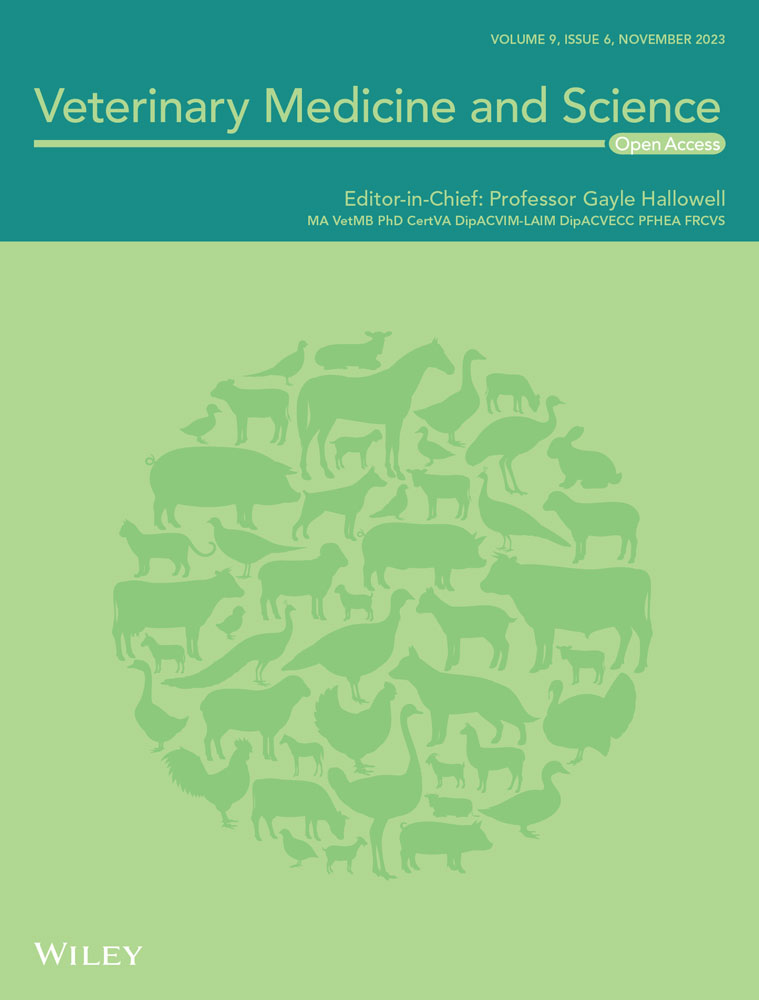
A systematic review on the effect of Ginger (Zingiber officinale) on improvement of biological and fertility indices of sperm in laboratory animals, poultry and humans
2021 Jun 30 Veterinary Medicine and Science Gholami‐Ahangaran M, Karimi‐Dehkordi M, Akbari Javar A, Haj Salehi M, Ostadpoor M
Systematic Review Ginger Testosterone Sperm Quality Male FertilityGinger significantly improves sperm health, enhancing quality parameters like count, viability, motility, morphology and DNA integrity, thereby boosting fertility.

The most important medicinal plants affecting sperm and testosterone production: a systematic review
2021 Jan JBRA Assisted Reproduction Boroujeni SN, Bossaghzadeh F, Malamiri FA, Esmaeili A, Moudi E
The study concludes that certain medicinal plants, such as Apium graveolens, Cinnamomum camphora, Cornus mas, Satureja khuzestanica, Withania somnifera, Fumaria parviflora, zingiber officinale, cinnamomum zeylanicum, and Phoenix dactylifera, have potential in increasing fertility due to their antioxidant power and low side effects.
Systematic Review Ceylon Cinnamon Testosterone Sperm Quality
Effectiveness of acupuncture in polycystic ovary syndrome
2020 May 29 Medicine Wu J, Chen D, Liu N
Systematic Review Meta-AnalysisAcupuncture could promote the recovery of menstrual cycles as well as downregulate the levels of LH and testosterone in patients with PCOS.
Clinical Trials
Clinical trials are research studies that involve people and are conducted to evaluate the safety and efficacy of new treatments or interventions, such as drugs, medical devices, or behavioural therapies.

The effects of propolis supplementation on high‐sensitivity C‐reactive protein, testosterone hormone, and metabolic profile in women with polycystic ovary syndrome: A randomized, triple‐blinded, placebo‐controlled clinical trial
2023 Sep 02 Phytotherapy Research Abbasi E, Bagherniya M, Soleimani D, Ghasemi‐Tehrani H, Abbaspour M, Clark CCT, et al.
Randomised Controlled TrialPropolis supplementation positively influences metabolic factors, testosterone levels, lipid profile, and body measurements in women suffering from polycystic ovarian syndrome.

The effect of concentrated pomegranate juice on biomarkers of inflammation, oxidative stress, and sex hormones in overweight and obese women with polycystic ovary syndrome: A randomized controlled trial
2023 Jan 18 Phytotherapy Research Abedini M, Ramezani‐Jolfaie N, Ghasemi‐Tehrani H, Tarrahi MJ, Amani R
Randomised Controlled Trial PCOS Pomegranate TestosteronePomegranate juice supplementation has been found to effectively decrease testosterone levels in overweight and obese women diagnosed with polycystic ovary syndrome.

A comparison of the effects of cinnamon, ginger, and metformin consumption on metabolic health, anthropometric indices, and sexual hormone levels in women with poly cystic ovary syndrome: A randomized double-blinded placebo-controlled clinical trial
2022 Nov 29 Frontiers in Nutrition Dastgheib M, Barati-Boldaji R, Bahrampour N, Taheri R, Borghei M, Amooee S, et al.
Randomised Controlled Trial Cinnamon Testosterone Metabolic Syndrome FSH Ginger PCOS Insulin Resistance Metformin Ceylon Cinnamon LHIn women with polycystic ovary syndrome, cinnamon reduced insulin resistance and testosterone levels similar to metformin, and ginger decreased follicle-stimulating and luteinizing hormones.
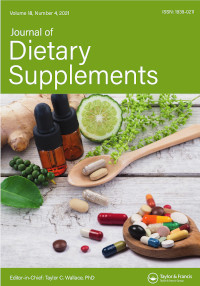
A Proprietary Herbal Blend Containing Extracts of Punica granatum Fruit Rind and Theobroma cocoa Seeds Increases Serum Testosterone Level in Healthy Young Males: A Randomized, Double-Blind Placebo-Controlled Study
2022 Feb 06 Journal of Dietary Supplements Sreeramaneni PGA, Yalamanchi A, Konda MR, Cherukuri SHV, Maroon JC
Randomised Controlled Trial Pomegranate Peel CocoaThe proprietary herbal blend LN18178 significantly boosts testosterone levels, muscle strength and mid-upper arm circumference in young, healthy males.

A proprietary blend of standardized Punica granatum fruit rind and Theobroma cocoa seed extracts mitigates aging males' symptoms: A randomized, double-blind, placebo-controlled study
2022 Jan International Journal of Medical Sciences Pandit SL, Yaligar D, Halemane M, Bhat A
LN18178 supplementation reduced AMS scores and improved sexual performance. Also, LN18178 groups exhibited superior muscular strength and reduction in perceived stress. Total blood chemistry and urine analysis demonstrated the broad-spectrum safety.
Randomised Controlled Trial Anti-Ageing Hand-Grip Strength Cocoa Pomegranate PeelStudy Protocols
Published study protocols are detailed plans that outline the objectives, methodology, statistical analyses, and organisation of a research study that have been made publicly available for others to review and use as a reference.
Presentation Slides

Randomised Controlled Trial
Propolis supplementation positively influences metabolic factors, testosterone levels, lipid profile, and body measurements in women suffering from polycystic ovarian syndrome.
Abbasi E, Bagherniya M, Soleimani D, Ghasemi‐Tehrani H, Abbaspour M, Clark CCT, Askari G

Randomised Controlled Trial
Pomegranate juice supplementation has been found to effectively decrease testosterone levels in overweight and obese women diagnosed with polycystic ovary syndrome.
Abedini M, Ramezani‐Jolfaie N, Ghasemi‐Tehrani H, Tarrahi MJ, Amani R

Cohort Study
The Mediterranean diet, rich in organic vegetables, fruits, whole grains, and healthy fats, can markedly improve male fertility by increasing testosterone levels and reducing sperm DNA fragmentation.
Corsetti V, Notari T, Montano L

Randomised Controlled Trial
In women with polycystic ovary syndrome, cinnamon reduced insulin resistance and testosterone levels similar to metformin, and ginger decreased follicle-stimulating and luteinizing hormones.
Dastgheib M, Barati-Boldaji R, Bahrampour N, Taheri R, Borghei M, Amooee S, Mohammadi-Sartang M, Wong A, Babajafari S, Mazloomi SM

Review Article
Nutraceuticals like zinc, vitamin D, l-arginine, mucuna, ashwagandha, tribulus, and ω3 fatty acids, along with lifestyle changes, can mildly improve male testosterone levels and sperm parameters.
Santos HO, Cadegiani FA, Forbes SC

Randomised Controlled Trial
The proprietary herbal blend LN18178 significantly boosts testosterone levels, muscle strength and mid-upper arm circumference in young, healthy males.
Sreeramaneni PGA, Yalamanchi A, Konda MR, Cherukuri SHV, Maroon JC
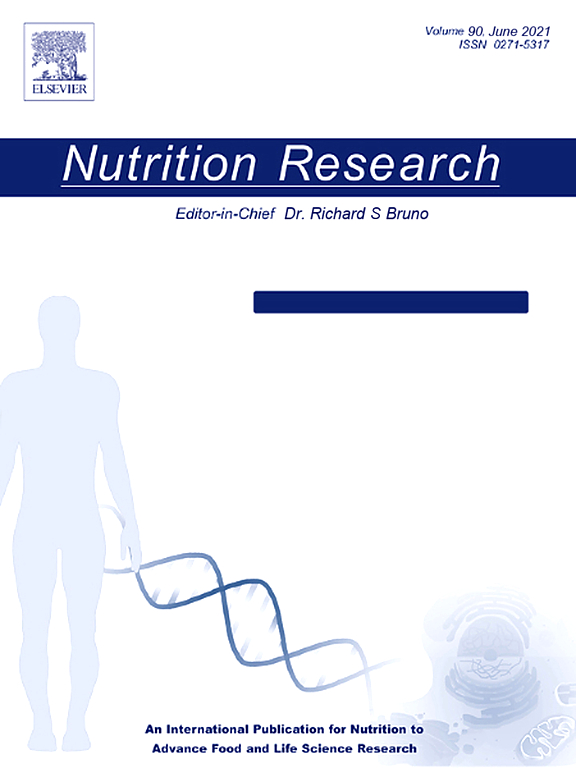
Cohort Study
Tree nut consumption is inversely associated with the prevalence of hyperestrogenism and circulating estradiol levels in men.
Wang Y, Fang Y

Experimental Study
Saffron petal extract and anthocyanins can alleviate symptoms of Polycystic Ovary Syndrome by rectifying hormonal imbalances and reducing inflammation in PCOS mice.
Moshfegh F, Balanejad SZ, Shahrokhabady K, Attaranzadeh A
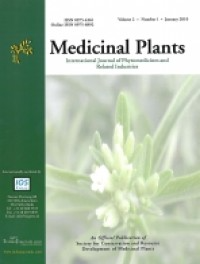
Randomised Controlled Trial
Chamomile can significantly improve menstrual regulation and decrease testosterone levels in women of reproductive age with polycystic ovary syndrome.
Heidary M, Dokuhaki S, Yazdanpanahi Z, Dabbaghmanesh MH, Emamghoreishi M, Akbarzadeh M

Experimental Study
Tiger nut and walnut supplementation in diets can improve testosterone levels and help control vasoconstriction, potentially benefiting hypertensive individuals.
Olabiyi AA, Morsch VM, Oboh G, Schetinger MRC
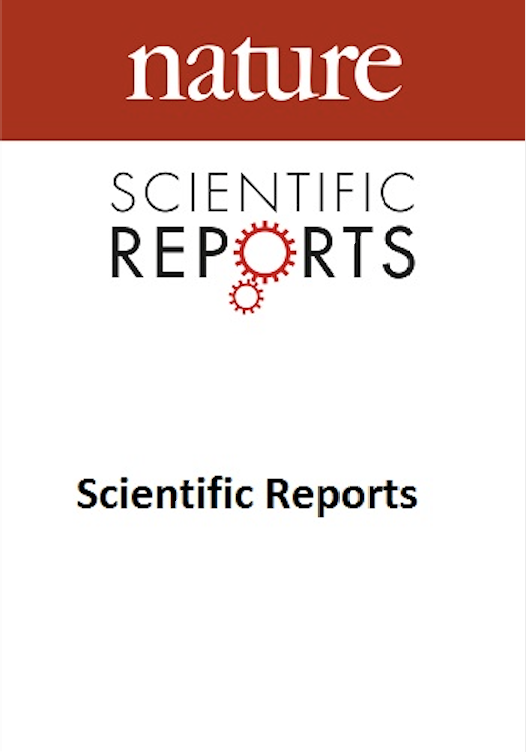
Cohort Study
Lower testosterone levels in aging men correlate with a larger prostate volume.
Xia BW, Zhao SC, Chen ZP, Chen C, Liu TS, Yang F, Yan Y

Systematic Review
Ginger significantly improves sperm health, enhancing quality parameters like count, viability, motility, morphology and DNA integrity, thereby boosting fertility.
Gholami‐Ahangaran M, Karimi‐Dehkordi M, Akbari Javar A, Haj Salehi M, Ostadpoor M

Review Article
In reproductive health, honey can improve infertility, protect the postmenopausal reproductive tract, prevent toxic effects, maintain sperm quality by restoring testosterone levels and treat vulvovaginal candidiasis infections.
Zaid SSM, Ruslee SS, Mokhtar MH

Experimental Study
Ginger supplementation can prevent ethanol-induced reproductive dysfunction by improving hormone levels, reducing oxidative damage, inflammation, and regulating genes involved in testosterone synthesis.
Li N, Xing Y, Sultan AH, Raeeszadeh M, Akbari A, Liu H
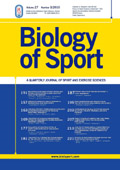
Randomised Controlled Trial
Walnut consumption coupled with concurrent training improves lipid profile, steroid hormone levels, and systematic inflammation in elderly men.
Kamoun A, Hammouda O, Turki M, Maaloul R, Chtourou M, Bouaziz M, Driss T, Souissi N, Chamari K, Ayadi F

Systematic Review
Acupuncture could promote the recovery of menstrual cycles as well as downregulate the levels of LH and testosterone in patients with PCOS.
Wu J, Chen D, Liu N
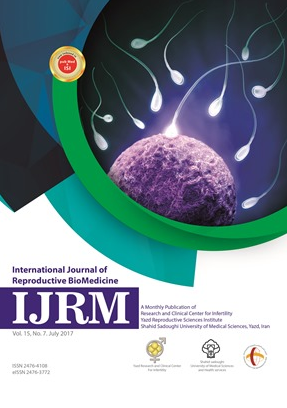
Experimental Study
Date palm fruit extract may mitigate some harmful effects of formaldehyde on male fertility by improving testosterone, sperm, and testicular conditions.
Zaren M, Haghpanah T, Asadi Shekari M, Hassan Eftekhar-Vaghefi S

Systematic Review
Oral administration of honey is associated with increased serum testosterone levels in males, supported by in vivo studies suggesting mechanisms involving luteinizing hormone production, Leydig cell viability, oxidative damage reduction, enhanced StAR gene expression, and aromatase activity inhibition.
Banihani SA

Systematic Review
The collective evidence, which is mainly based on in vivo system studies, reveals that oral administration of honey increases serum testosterone level in males.
Banihani SA
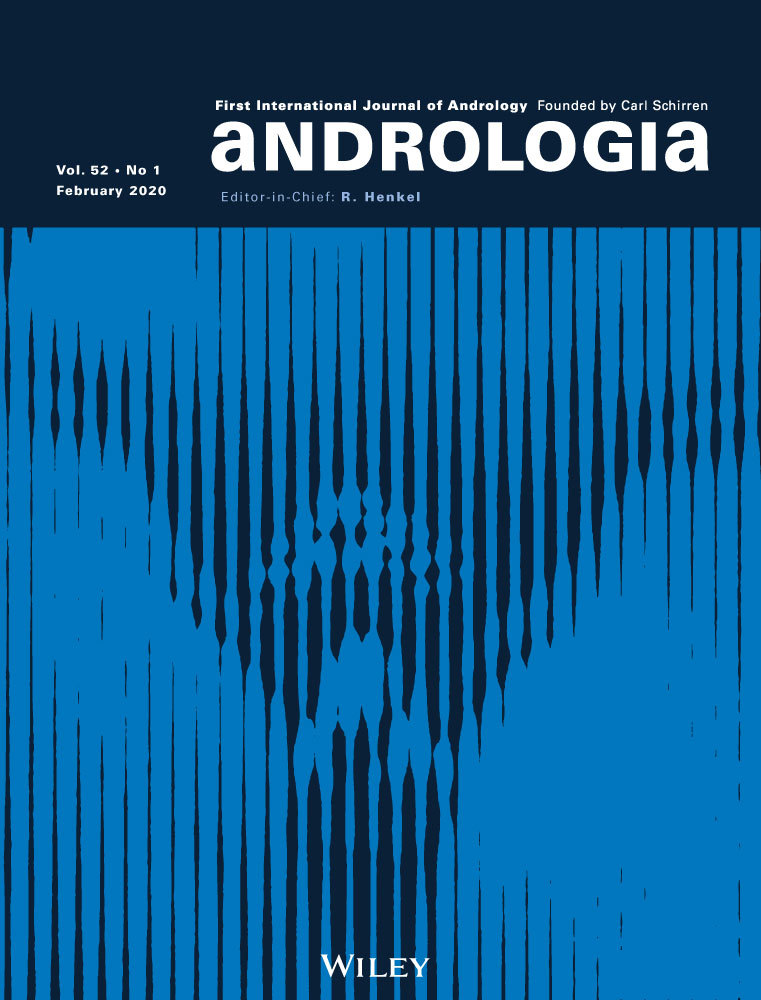
Systematic Review
Ginger enhances semen quality and improves sperm parameters, an impact linked to increased levels of gonadal hormones, decreased cell damage, and valued nutrients in ginger.
Banihani SA
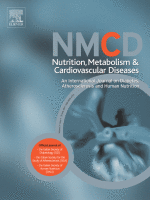
Randomised Controlled Trial
Synbiotic pomegranate juice (containing inulin and lactobacillus) can improve insulin resistance, reduce testosterone level, and aid weight loss in women suffering from Polycystic Ovarian Syndrome.
Esmaeilinezhad Z, Babajafari S, Sohrabi Z, Eskandari MH, Amooee S, Barati-Boldaji R
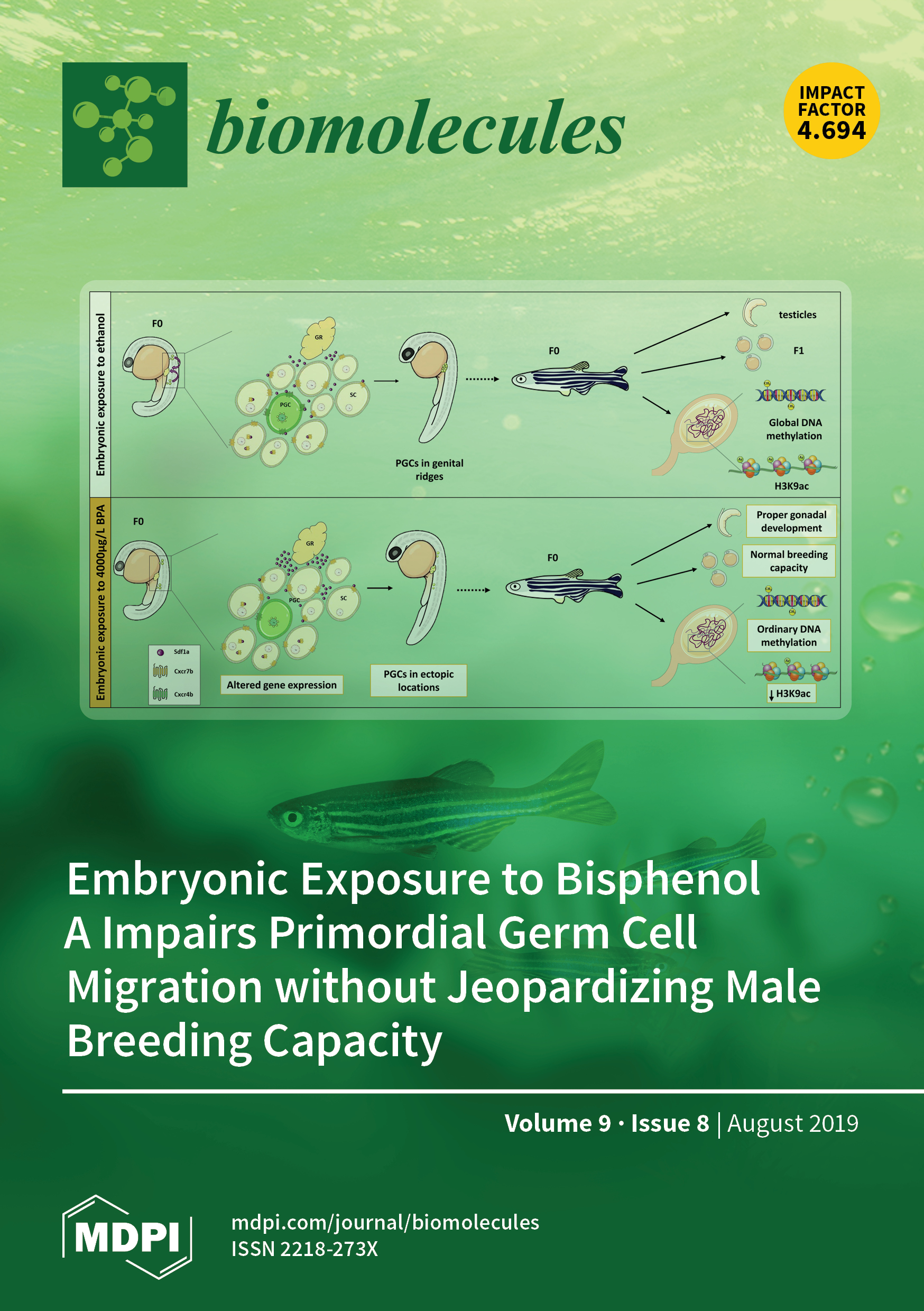
Systematic Review
Ginger supplementation enhances the production of testosterone in males by reducing oxidative stress and increasing luteinizing hormone production, cholesterol in testes, and blood flow to the testes.
Banihani SA
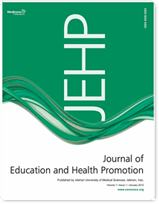
Randomised Controlled Trial
Green tea consumption leads to weight loss and decreased levels of fasting insulin and free testosterone in overweight women with polycystic ovarian syndrome.
Tehrani HG, Allahdadian M, Zarre F, Ranjbar H, Allahdadian F
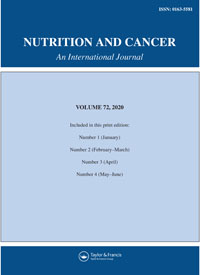
Clinical Study
Pomegranate juice consumption slightly decreases estrone and testosterone levels in normal weight postmenopausal women.
Kapoor R, Ronnenberg A, Puleo E, Chatterton Jr. RT, Dorgan JF, Seeram NP, Sturgeon SR

Experimental Study
Pomegranate Fruit Extract (PFE) can potentially mitigate testosterone-induced Benign Prostatic Hyperplasia in rats due to its anti-inflammatory, antioxidant and pro-apoptotic properties.
Ammar AE, Esmat A, Hassona MDH, Tadros MG, Abdel‐Naim AB, Guns EST

Randomised Controlled Trial
Tualang honey demonstrates efficacy comparable to Tribestan in enhancing sperm parameters among oligospermic males, including concentration, motility, and morphology, with a favorable safety profile.
Ismail SB, Bakar MB, Nik Hussain NH, Norhayati MN, Sulaiman SA, Jaafar H, Draman S, Ramli R, Wan Yusoff WZ
Executive Summary
Write an executive summary in the form of a blog article on the topic of "Research into Chinese medicine treatment for Testosterone" summarising the research below and using language that can be easily understood by patients and avoiding medical jargon using a professional and caring tone of voice.
Write an executive summary in the form of a blog article on the topic of "Researched Chinese medicine treatments for Testosterone" summarising the research below in an objective and easy to understand way, and using language that can be easily understood by patients. Group the article into Chinese medicine treatments first, followed by nutrition and other treatments. Avoid using medical jargon and use a professional and caring tone of voice.
Write me a concise but easy to understand executive summary on the topic of "Chinese medicine treatments for Testosterone" based on the following research that I will give you. Your summary should be 2 paragraphs long in Australian English spelling and include references to the studies.
A Randomised Controlled Trial published in 2023 in the journal Phytotherapy Research found that Propolis supplementation positively influences metabolic factors, testosterone levels, lipid profile, and body measurements in women suffering from polycystic ovarian syndrome. The research was a triple-blind controlled trial constructed to consider the effects of propolis on women with polycystic ovarian syndrome. The participants, who were patients from a gynecology clinic, were randomly divided, following a structured randomization procedure, into two groups. One group was assigned to consume propolis tablets twice daily, amounting to 500 mg of propolis each day, while the other group received placebo tablets that were identical in appearance. This trial took place over the course of 12 weeks in the timeframe of 2021 to 2022. Information was gathered with the help of a demographic questionnaire, blood samples from the participants, and a checklist that helped record the parameters measured. In discussing results, it was noted that several key factors showed significant difference between the propolis and placebo groups. Hip circumference, fasting insulin, insulin resistance, testosterone levels, and low-density to high-density lipoprotein ratios were all seen to drop considerably in the group that received propolis, showing the potential benefits of this natural supplement. Despite an initial decrease in fasting blood sugar levels in the propolis group, the significance of this change was reduced after adjusting for other factors. Conclusively, the evidence points towards notable benefits of propolis, providing support for its usage in managing polycystic ovarian syndrome.
A Randomised Controlled Trial published in 2023 in the journal Phytotherapy Research found that Pomegranate juice supplementation has been found to effectively decrease testosterone levels in overweight and obese women diagnosed with polycystic ovary syndrome. In the methodology, the study employed a randomized controlled trial which involved 44 participants. The women, aged between 18 and 40 years, had all been diagnosed with polycystic ovary syndrome and had a body mass index exceeding 25 kg/m. They were randomly divided, with one group consuming 45 ml/day of concentrated pomegranate juice and the other group receiving no intervention. A variety of biomarkers for sex hormones, inflammation, and oxidative stress were measured before starting the trial and again after eight weeks. Further discussion of the results revealed a significant decrease in testosterone levels among the overweight and obese women with polycystic ovary syndrome who took concentrated pomegranate juice over the eight week period, in contrast to those in the control group. Apart from testosterone, no significant changes were observed for luteinizing hormone, sex hormone-binding globulin levels or for markers of inflammation and oxidative stress between the two groups.
A Cohort Study published in 2023 in the journal Current Research in Food Science found that The Mediterranean diet, rich in organic vegetables, fruits, whole grains, and healthy fats, can markedly improve male fertility by increasing testosterone levels and reducing sperm DNA fragmentation. The study designed a dietary regimen for 50 subfertile men, modifying their diets primarily with organic foods and a low-carb Mediterranean style approach, emphasized on consuming high amount of vegetables and fruits rich in various nutrients and antioxidant substances. The participants introduced whole grains, low glycemic load options, removed refined carbohydrates, ate green leafy vegetables and red fruits daily, reduced or eliminated dairy products, consumed primarily grass-fed meat and wild caught seafood, and replaced saturated fats with healthy fats such as olive oil, avocado, and nuts. After following the modified meal plan for three months, there were considerable increases in testosterone levels observed in the subjects. Alongside this, the study also noted a decrease in sperm DNA fragmentation, particularly in individuals who reduced their carbohydrate intake by 35%. These findings demonstrate the direct effects a specifically modified diet can have on improving male fertility.
A Randomised Controlled Trial published in 2022 in the journal Frontiers in Nutrition found that In women with polycystic ovary syndrome, cinnamon reduced insulin resistance and testosterone levels similar to metformin, and ginger decreased follicle-stimulating and luteinizing hormones. In the methodology of the study, 100 women diagnosed with polycystic ovary syndrome were divided into four groups. Each group received a different treatment: cinnamon, ginger, metformin, or placebo. The dosage for these treatments was 500 mg, three times a day, administered over a period of 8 weeks. The participants' sex hormones, weight revelations, along with glycemic and lipid markers were monitored before and after this period. Several participants were disqualified because of unspecified factors, resulting in a final sample size of 83. In terms of results, all groups saw a decrease in weight and body mass index. The metformin and cinnamon groups specifically had notably decreases in their insulin resistance, meaning that these treatments were effective in improving metabolic health. Additionally, the ginger group experienced a reduction in follicle-stimulating hormone and luteinizing hormone levels unlike the other groups. Testosterone levels were lowered in the metformin and cinnamon groups, but no significant changes in dehydroepiandrosterone were observed in any of the groups. These results indicate the potential use of cinnamon and ginger as alternative treatments in managing polycystic ovary syndrome.
A Review Article published in 2022 in the journal Clinical Therapeutics found that Nutraceuticals like zinc, vitamin D, l-arginine, mucuna, ashwagandha, tribulus, and ω3 fatty acids, along with lifestyle changes, can mildly improve male testosterone levels and sperm parameters. A comprehensive scoping review was undertaken to investigate the effectiveness of nonpharmacologic interventions such as dietary supplements, herbal remedies, diverse diets, sleep patterns, and various forms of physical exercise. The study was aimed to understand their potential in enhancing male health by improving testosterone levels and sperm parameters, especially in men with hypogonadism or fertility issues. Results indicated that among a multitude of nutraceuticals and functional nutrients that claim to stimulate testosterone production, only a select few, including zinc, vitamin D (in cases of its deficiency), l-arginine, mucuna, and ashwagandha, based on well-conducted randomized clinical trials, showed positive results in men with low testosterone levels and related complications. Except for l-arginine, these and other natural substances like tribulus and omega-3 fatty acids showed potential to enhance sperm parameters in infertile men. Implementing proper diet, ensuring adequate sleep and regular exercise are considered crucial, particularly in obese patients. It's also highlighted that androgen receptor content is potentially more significant in muscle hypertrophy than endogenous androgens. While the impact of nonpharmacologic interventions on testosterone levels are modest and do not translate into significant clinical benefits, some supplements and herbal medicines could serve as adjunctive approaches in testosterone and sperm health management. However, proper use of nutraceuticals involves personalised consideration by care providers.
A Randomised Controlled Trial published in 2022 in the journal Journal of Dietary Supplements found that The proprietary herbal blend LN18178 significantly boosts testosterone levels, muscle strength and mid-upper arm circumference in young, healthy males. In a randomized, double-blind, placebo-controlled study involving 120 male volunteers aged between 21 and 35 years, participants were arranged into three groups. Each group received a daily dose of either a placebo or 200 or 400 mg of LN18178 for a duration of 56 days. The primary focus of the study was to measure the potential increase in serum testosterone levels (both free and total). Secondary measures incorporated other hormones like dihydrotestosterone, cortisol, and Luteinizing hormone, as well as physical indicators such as hand grip strength and mid-upper arm circumference. Additionally, thorough checks were run pertaining to each participant's vital signs and clinical chemistry parameters in blood and urine to ensure product safety. After the intervention, both dosage levels of LN18178 significantly raised free testosterone levels. The higher dose group also showed noteworthy increases in total testosterone and luteinizing hormone levels. Meanwhile, the other hormone changes were found to be statistically insignificant. More importantly, the LN18178-400 group displayed significant enhancements in their hand grip strength and mid-upper arm circumference post-trial. The completion of the trial saw participants' vital signs and hemato-biochemical parameters within the normal range, suggesting that LN18178 is both safe and tolerable.
A Cohort Study published in 2022 in the journal Nutrition Research found that Tree nut consumption is inversely associated with the prevalence of hyperestrogenism and circulating estradiol levels in men. This cross-sectional study utilized data from the US National Health and Nutrition Examination Survey between 2013 and 2016, and involved 3340 men aged 20 years and above. The associations of tree nut consumption with circulating estradiol - a form of the female sex hormone estrogen - and the prevalence of hyperestrogenism - a condition characterized by excess estrogen - were analyzed using weighted linear regression and binary logistic regression, respectively. Tree nut consumption was observed in 207 of the participants, with the average usual intake amounting to 34.2g per day. The study noticed an inverse relationship between the typical intake of tree nuts and levels of bioavailable estradiol, even after taking into account all confounding factors. Regular consumption of 30g/day or more of tree nuts was associated with significantly lower risk of hyperestrogenism. Furthermore, higher consumption of tree nuts was linked with higher levels of circulating folate, which was in turn inversely related to circulating estradiol. Therefore, the study concluded that increased tree nut consumption could potentially lower the risk of hyperestrogenism in men by reducing circulating estradiol levels.
A Experimental Study published in 2022 in the journal Journal of Ethnopharmacology found that Saffron petal extract and anthocyanins can alleviate symptoms of Polycystic Ovary Syndrome by rectifying hormonal imbalances and reducing inflammation in PCOS mice. The study conducted experiments on mice induced with Polycystic Ovary Syndrome (PCOS) through the injection of testosterone enanthate. These mice were then treated with saffron petal extract and anthocyanins to observe the effect on their ovarian hormones, steroidogenic enzymes, ovarian dysfunction, regulation of anti-inflammatory genes, and antioxidant factors. The treatment was found to decrease the elevated levels of luteinizing hormone, testosterone, and estrogen in the PCOS mice, while reviving the reduced follicular-stimulating hormone and progesterone levels. In discussion of the results, it was observed that saffron petal extract and anthocyanins positively altered the levels of gonadotropin receptors, steroid receptors, inflammatory markers, inflammatory-related factors, and antioxidant enzymes that were affected by the PCOS condition in the subject mice. The study also noted that the reproductive tissues of the PCOS mice, which were converted into androgen-dominant environments by the testosterone enanthate induction, were restored into estrogenic conditions after the treatment. Further findings suggested that saffron petal extract and anthocyanins led to amelioration of PCOS symptoms by enhancing the regulation of ovarian steroids, steroidogenic processes, antioxidant enzyme production, and inflammatory markers.
A Randomised Controlled Trial published in 2022 in the journal Medicinal Plants - International Journal of Phytomedicines and Related Industries found that Chamomile can significantly improve menstrual regulation and decrease testosterone levels in women of reproductive age with polycystic ovary syndrome. In this randomized clinical trial, 80 women of reproductive age diagnosed with polycystic ovary syndrome were divided into two groups – intervention and control. The intervention group was given a chamomile capsule three times a day over the course of 12 weeks. The control group received a placebo with the same prescription timing. The menstrual patterns and two androgens, testosterone and dehydroepiandrosterone, were evaluated before and after this three-month period. The primary outcome observed was a significant increase in the number of participants with normal menstrual cycles in the chamomile capsules user group. Alongside this, a major improvement in the number of menstrual cycles after chamomile therapy was seen. A noteworthy decrease was also observed in testosterone levels amongst women in the intervention group whereas there was no significant change in the level of hormone dehydroepiandrosterone sulfate in either the intervention or control groups. This demonstrates that chamomile could potentially help regulate menstruation and decrease total testosterone levels in women struggling with polycystic ovary syndrome.
A Experimental Study published in 2021 in the journal Nutrients found that Tiger nut and walnut supplementation in diets can improve testosterone levels and help control vasoconstriction, potentially benefiting hypertensive individuals. Rats were used in the experiment, placed into seven distinct groups with various diet and medicinal intake combinations including basal diet controls, supplemented processed and raw tiger nut (TN) and walnut (WN) diets, and more. Before hypertension was induced with L-NAME, the rats were given their regular diet for two weeks. After this period, they began receiving L-NAME for ten subsequent days. The scientists then measured the impacts on the rats' platelet androgen levels, ectonucleotidases, and adenosine deaminase (ADA). The L-NAME treatment resulted in a considerable decline in testosterone levels in the rats. However, the groups that were fed diets supplemented with TN and WN exhibited improved testosterone levels compared to the control group, yet their luteinizing hormone levels remained unchanged. The L-NAME-treated group also saw an increase in ATP hydrolysis and ADA activity, alongside a reduction in ADP and AMP hydrolysis. These effects were substantially reversed in the groups that were fed supplemented TN and WN diets. This suggests that TN and WN could enhance testosterone levels and modulate the purinergic system in platelets, which might be a potential mechanism through which they contribute to the control of vasoconstriction.
A Cohort Study published in 2021 in the journal Scientific Reports found that Lower testosterone levels in aging men correlate with a larger prostate volume. The study analysed the relationship between testosterone levels and prostate size in aging, overtly healthy males. Data was collected from 416 men who underwent routine health exams and these individuals were revisited after a span of four years. Variables not only included testosterone levels and prostate size, but also examined associated obesity-related factors such as waist circumference, body mass index, and insulin levels. The analysis focused on drawing correlations between various factors. Specifically, comparisons were made between men with lower testosterone levels and larger prostate sizes, and those with normal testosterone levels. Both initial prostate sizes and the change in size over the four-year period were evaluated in conjunction with testosterone levels. The role of testosterone levels was further intricately reviewed by adjusting for the age factor, to understand how this relationship may change over time. In investigating the results, it was observed that men with lower testosterone did tend to have significantly larger prostates, and higher levels of obesity-related factors compared to those with normal testosterone levels. It was also found that there was a negative correlation between testosterone levels and prostate size, that is, as testosterone increased, prostate size showed a substantial decreasing trend.
A Systematic Review published in 2021 in the journal Veterinary Medicine and Science found that Ginger significantly improves sperm health, enhancing quality parameters like count, viability, motility, morphology and DNA integrity, thereby boosting fertility. The study investigated the impact of ginger on semen quality across different species. It focused on key sperm parameters including count, viability, motility, morphology, and DNA integrity. The research pointed to the antioxidant properties of ginger, attributed to active phenolic compounds, which disrupt the production of free radicals - these are known to cause oxidative stress and negatively impact the quality of sperm. The study also noted ginger's androgenic activity and the associated influence on the levels of gonadotropin and sex hormones, such as testosterone. In the discussion of results, it was identified that ginger minimizes DNA failures, reduces damage to the mitochondrial genome in sperm cells, and essentially moulds a sperm with apt morphological structure. The sperm, under the influence of ginger, attains progressive motility, high viability, and increased fertility. Overall, the entire fertility indicators of sperm also saw an upswing with the usage of ginger - reinforcing its effectiveness in increasing the total motility, survival rate, the normal morphological structure of sperm, and the number of sperm cells.
A Review Article published in 2021 in the journal Molecules found that In reproductive health, honey can improve infertility, protect the postmenopausal reproductive tract, prevent toxic effects, maintain sperm quality by restoring testosterone levels and treat vulvovaginal candidiasis infections. Honey has a highly complex chemical and biological composition that consists of various essential bioactive compounds, enzymes, amino and organic acids, acid phosphorylase, phytochemicals, carotenoid-like substances, vitamins and minerals. Reproductive health and fertility rates have declined in the last 30 years. Therefore, this review aimed to highlight the protective role of honey as a potential therapeutic in maintaining reproductive health. The main role of honey is to enhance fertility and treat infertility problems by acting as an alternative to hormone replacement therapy for protecting the vagina and uterus from atrophy, protecting against the toxic effects of xeno-oestrogenic agents on female reproductive functions and helping in the treatment of gynaecological disorders, such as vulvovaginal candidiasis infection, that affect women’s lives.
A Experimental Study published in 2021 in the journal Brazilian Archives of Biology and Technology found that Ginger supplementation can prevent ethanol-induced reproductive dysfunction by improving hormone levels, reducing oxidative damage, inflammation, and regulating genes involved in testosterone synthesis. The methodology involved twenty-four adult male rats divided into four groups for a 28-day experiment. The researchers administered either ethanol or ginger extract to respective groups and then measured varying physiological factors related to reproductive health such as testosterone levels, antioxidant enzyme activity, concentrations of tumor necrosis factor-alpha, and gonadotropins hormones. In addition, gene expressions related to oxidative damage, inflammation, and testosterone synthesis were also examined. Animating the discussion of results, it was observed that the administration of ethanol significantly decreased levels of hormones, oxidative markers, and lowered gene expression involved in testosterone synthesis. Conversely, ethanol caused an increase in inflammatory markers and the expression of genes related to inflammation. On the other hand, rats given a ginger supplement positively reversed these effects, showing significant improvements in all factors, thus leading to the conclusion that ginger can prevent reproductive issues induced by ethanol. The results obtained from the histological study further confirmed these findings, reaffirming that ginger could effectively counter ethanol-induced reproductive dysfunction.
A Randomised Controlled Trial published in 2021 in the journal Biology of Sport found that Walnut consumption coupled with concurrent training improves lipid profile, steroid hormone levels, and systematic inflammation in elderly men. The study created two matched groups of fit elderly men and placed one on a diet inclusive of walnuts (15g/day for six weeks) alongside their concurrent (resistance and endurance) training. The other group did the concurrent training without the walnut-supplemented diet. The study then took fasting blood samples from the participants 48 hours before and after the intervention for biochemical assessments. The group consuming walnuts saw a significant improvement in their lipid profiles with increased high-density lipoprotein levels and decreased total cholesterol, low-density lipoprotein and triglyceride levels. The walnut-eating participants also saw an increase in testosterone levels after the training, which was significantly higher than the group not consuming walnuts. Additionally, the walnut-consuming group experienced lowered cortisol levels and decreased C-reactive protein compared to the group not consuming walnuts. It is plausible the results could be attributed to the presence of polyunsaturated fatty acids in walnuts.
A Systematic Review published in 2020 in the journal Medicine found that Acupuncture could promote the recovery of menstrual cycles as well as downregulate the levels of LH and testosterone in patients with PCOS. Twenty two studies with 2315 participants were included in this systematic review and meta-analysis. A pooled analysis showed a recovery of the menstrual period in the acupuncture group. Furthermore, there were significant decreases in the luteinizing hormone (LH) and testosterone in the acupuncture group. No significant differences were observed in the rates of live birth, pregnancy, and ovulation, and no significant differences were observed in the LH/follicle-stimulating hormone (FSH) ratio. There was insufficient evidence to support that acupuncture could promote live birth, pregnancy, and ovulation. However, acupuncture could promote the recovery of menstrual cycles as well as downregulate the levels of LH and testosterone in patients with PCOS.
A Experimental Study published in 2020 in the journal International Journal of Reproductive BioMedicine (IJRM) found that Date palm fruit extract may mitigate some harmful effects of formaldehyde on male fertility by improving testosterone, sperm, and testicular conditions. The study divided thirty-two male mice of similar ages and weight ranges into four groups. The control group was given distilled water orally for 35 days. The Formaldehyde group received a Formaldehyde dose for 20 days. The third group took a Date fruit extract dose for 35 days followed by a Formaldehyde dose for 20 days while the last group was administered Date fruit extract for 35 days. Following these treatments, blood was collected and epididymis and testis tissues analyzed to evaluate sperm characteristics and conduct a histological examination respectively. Results showed that formaldehyde administration increased sperm deformities, decreased sperm count, livability, and motility, and reduced testosterone levels in comparison to the control group. Histological assessments showed that formaldehyde induced changes in the testes, including damage to the germinal epithelium and vacuolization of the tubules. However, the consumption of Date palm fruit extract was found to ameliorate the effects noticed due to formaldehyde on testosterone levels, sperm, and testicular parameters.
A Systematic Review published in 2019 in the journal Heliyon found that Oral administration of honey is associated with increased serum testosterone levels in males, supported by in vivo studies suggesting mechanisms involving luteinizing hormone production, Leydig cell viability, oxidative damage reduction, enhanced StAR gene expression, and aromatase activity inhibition. This systematic review examined research articles retrieved from PubMed, Scopus, and Embase databases (May 1993 to April 2019) using keywords "honey" and "honeybee" versus "testosterone." The analysis, primarily based on in vivo studies, concludes that honey positively impacts serum testosterone levels in males. Mechanistically, honey is proposed to elevate testosterone by stimulating luteinizing hormone production, enhancing Leydig cell viability, reducing oxidative damage, promoting StAR gene expression, and inhibiting aromatase activity in the testes. While the evidence is promising, further human studies, particularly clinical trials, are necessary to validate honey's effect on testosterone. The comprehensive review underscores the potential of honey in elevating serum testosterone levels in males, proposing detailed mechanistic pathways. In vivo studies provide valuable insights into how honey influences hormone production, cell viability, and genetic expression. However, the conclusive confirmation of honey's impact on testosterone awaits further research, specifically in the form of human clinical trials, to strengthen the evidence and bridge the gap between in vivo findings and clinical applicability.
A Systematic Review published in 2019 in the journal Heliyon found that The collective evidence, which is mainly based on in vivo system studies, reveals that oral administration of honey increases serum testosterone level in males. Mechanistically, honey may increase serum level of testosterone by increasing the production of luteinizing hormone, enhancing the viability of Leydig cells, reducing oxidative damage in Leydig cells, enhancing StAR gene expression, and inhibiting aromatase activity in the testes. However, further research studies on humans, mainly clinical trials, in this specific research approach are still needed to confirm the effect of honey on testosterone.
A Systematic Review published in 2019 in the journal Andrologia found that Ginger enhances semen quality and improves sperm parameters, an impact linked to increased levels of gonadal hormones, decreased cell damage, and valued nutrients in ginger. In the methodological approach, this study conducted a systematic review of original research articles listed on Scopus and PubMed. The search terms applied were "ginger," "sperm," and "semen," to find studies published in English from August 2004 to February 2019 that explored the biological effects of ginger or ginger extracts on semen quality and sperm parameters. In the discussion of the results, the main conclusion was that there is clear evidence that ginger betters semen quality and advances primary sperm attributes such as concentration, viability, motility, and morphology. This enhancement is presumably due to increased levels of gonadal hormones, particularly testosterone and luteinising hormone, reduced oxidative damage to cells, increased production of nitric oxide, hypoglycaemic response of ginger, and the presence of valuable nutrients in ginger such as manganese.
A Randomised Controlled Trial published in 2019 in the journal Nutrition, Metabolism and Cardiovascular Diseases found that Synbiotic pomegranate juice (containing inulin and lactobacillus) can improve insulin resistance, reduce testosterone level, and aid weight loss in women suffering from Polycystic Ovarian Syndrome. In this randomized, controlled, triple-blind, parallel trial study, patients diagnosed with Polycystic Ovarian Syndrome (92 in total) were grouped into four groups of 23. The three treatment groups received 2 litres of synbiotic pomegranate juice (SPJ), pomegranate juice (PJ), and a synbiotic beverage (SB) on a weekly basis. The control group was given a placebo beverage weekly. The primary focus of this trial was to observe any changes in insulin resistance, with secondary outcomes including fasting blood sugar, insulin sensitivity, testosterone, luteinizing hormone, follicle-stimulating hormone, body mass index, and waist and hip circumference comparisons, from baseline to the end of the trial. After finishing the trial, analyses of the remaining 86 patients indicated noticeable improvement in insulin resistance, mainly in the SPJ and SB groups. The same groups also showed a significant increase in insulin sensitivity and an overall decrease in insulin. The SPJ and SB groups also saw significant reductions in body mass index, weight, and waist circumference. Lastly, there was a noteworthy decrease in testosterone levels within the SPJ and SB groups. However, no significant changes were found in fasting plasma glucose, luteinizing hormone, and follicle-stimulating hormone in any of the groups.
A Systematic Review published in 2018 in the journal Biomolecules found that Ginger supplementation enhances the production of testosterone in males by reducing oxidative stress and increasing luteinizing hormone production, cholesterol in testes, and blood flow to the testes. The study reviewed a collection of English language articles from three databases— PubMed, Scopus, and Web of Science— from November 1991 through August 2018. Keywords for the search included "ginger" and "testosterone". The references from relevant published articles were also reviewed. The methodology encompassed both in-vivo and basic research studies that sought to discover a link between ginger and testosterone. The results revealed that ginger supplementation enhances testosterone production in males, particularly in conditions of oxidative stress. This effect is achieved primarily by increasing the production of luteinizing hormone, cholesterol levels in the testes, reducing testes oxidative stress and lipid peroxidation, enhancing antioxidant enzyme activity, normalizing blood glucose and increasing blood flow in the testes. Furthermore, the study shows a correlation between ginger supplementation and increased testicular weight, and recycling of testosterone receptors.
A Randomised Controlled Trial published in 2017 in the journal Journal of Education and Health Promotion found that Green tea consumption leads to weight loss and decreased levels of fasting insulin and free testosterone in overweight women with polycystic ovarian syndrome. In the research methodology, a two-group, double-blind, randomized clinical trial was conducted among 60 overweight women with polycystic ovarian syndrome in Isfahan. The participants were randomly classified into two groups, one receiving green tea (the experimental group) and the other receiving a placebo (the control group). Comparisons of levels of free testosterone hormones and fasting insulin were made at the start of the study and 12 weeks later, along with measurements of participant weight before and after the study. Discussing the results, the comparison showed no initial significant difference in participant weight, fasting insulin or free testosterone levels between the two groups. However, after the 12-week period, notable differences were observed. The green tea group showed significant weight loss and declines in both fasting insulin and free testosterone levels compared to the placebo group.
A Clinical Study published in 2015 in the journal Nutrition and Cancer found that Pomegranate juice consumption slightly decreases estrone and testosterone levels in normal weight postmenopausal women. In this study, 64 healthy postmenopausal women were randomly assigned to consume 8 ounces of either 100% commercial pomegranate juice or apple juice daily for a period of 3 weeks. The aim was to observe the effect of pomegranate juice intake on the serum levels of various sex hormones and sex hormone-binding globulin. Despite no significant alterations observed in the serum sex hormones or SHBG overall, a subgroup analysis of 38 normal weight participants indicated a significant reduction in estrone and testosterone levels for those who consumed pomegranate juice compared to the control group. The decrease was seen only in this subgroup, and not in the total group of participants. Hence, the direct effect of pomegranate juice on hormonal levels may be more apparent in normal weight postmenopausal women.
A Experimental Study published in 2015 in the journal The Prostate found that Pomegranate Fruit Extract (PFE) can potentially mitigate testosterone-induced Benign Prostatic Hyperplasia in rats due to its anti-inflammatory, antioxidant and pro-apoptotic properties. The study was carried out using 48 rats, which were randomly distributed into six groups. The Benign Prostatic Hyperplasia (BPH), a disease that affects men over 50, was induced in these rats using testosterone, except for one group which served as the control. Four groups of the induced rats, thereafter, were treated with diverse daily dosages of Pomegranate Fruit Extract (PFE), while one group received a regular dosage of PFE without BPH induction. Regarding the investigation outcomes, the most significant effect was observed in rats treated with the largest (100mg/kg) dosage of PFE. This treatment substantially reduced testosterone-induced increase in prostate weight and other related levels. Additionally, PFE significantly decreased Malondialdehyde (a marker for oxidative stress) and increased Glutathione, Superoxide dismutase, and Catalase, all of which work as antioxidants. The PFE also demonstrated an ability to decrease the expression of COX-II, iNOS and Ki-67 (indicators of inflammation and cell proliferation) while enhancing the rate of apoptosis (programmed cell death), contributing to the prevention of BPH development.
A Randomised Controlled Trial published in 2014 in the journal Evidence-Based Complementary and Alternative Medicine found that Tualang honey demonstrates efficacy comparable to Tribestan in enhancing sperm parameters among oligospermic males, including concentration, motility, and morphology, with a favorable safety profile. This study employed a randomized controlled trial over 12 weeks, comparing the effects of Tualang honey (20 grams) and Tribestan (750 mg) on sperm parameters, erectile function, and hormonal profiles. Sperm concentration, motility, and morphology were assessed, along with erectile function using the IIEF-5 questionnaire. Testosterone, FSH, and LH levels were studied. Results from 66 participants revealed a significant increase in mean sperm concentration, motility, and morphology in the Tualang honey group, while the Tribestan group showed significant improvements in sperm concentration and morphology. No significant differences were observed between the two groups in sperm parameters, erectile function, and hormonal profiles. Safety profiles were normal with no reported adverse events. The findings suggest that Tualang honey and Tribestan exhibit comparable effectiveness in enhancing sperm parameters, specifically concentration, motility, and morphology, among oligospermic males. Additionally, both interventions demonstrated similar effects on erectile function and hormonal profiles. The study concludes that Tualang honey is a safe alternative with no reported adverse events, highlighting its potential in addressing male reproductive health concerns.
Moderation Tools
Topic
Sign In
Users not signed in are limited to viewing the 5 most recent items of content.